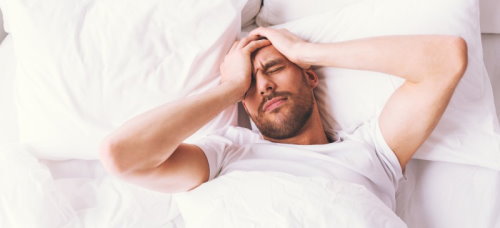Health is like a three-legged stool. That’s according to Dr. Jeanne Duffy, a lecturer at Harvard Medical School. Those three pillars of wellness include a good diet, plenty of exercise and high-quality sleep. Unfortunately, an increasing number of Americans are doing very poorly on all of these dimensions.
Americans are not getting enough sleep
Although its role is often overlooked, a lack of adequate rest can have a very detrimental impact on your health. Not getting enough hiqh-quality sleep (most people need seven to nine hours a night according to the experts) puts you at greater risk for:
BREAKING: Newly Legalized Herb Relieves Pain - Available Without A Prescription
- Metabolic disorders like diabetes, obesity and weight gain
- Cardiovascular disease
- Memory impairments and dementia
- Immune disorders
- Workplace accidents
- Auto crashes
Why sleep is so important
Why is sleep so critical to your health? Scientists believe that disruptions to your circadian rhythm (your body’s biological clock) can adversely affect your hormonal balance in ways that undermine your metabolism, your immune defenses and your body’s repair mechanisms. Study after study confirms the link between rest and resilience. People who are sleep deprived are far more susceptible to getting a cold or virus, having a heart attack and stroke, or even getting cancer.
Not getting enough sleep can also result in a host of cognitive problems too. Neuroscientists contend that most people need to be fully alert and awake when learning takes place so that new memories can be encoded in the brain.
But they also believe that it is only after a good night’s sleep that new memories are fully consolidated by the brain. The sleep hormone melatonin appears to play a key role in this memory consolidation process. Consequently, researchers insist that disruption in melatonin production (and consequently the circadian rhythm) can undermine learning, memory formation and cognitive health.
With that in mind, what factors may be interfering with your Zzz’s?
1. Artificial light
Computer screens, TVs, tablets and smartphones all expose you to a heavy dose of blue spectrum light. Try to avoid these devices at least one hour before going to bed. If that’s not possible, then you may want to download an app or use the “Night Shift” feature on your gadget to adjust the tint to a setting that’s more sleep-friendly.
2. The late night snack
Indulging in a midnight munch will cause your blood glucose levels to spike and then plummet just at the wrong time. That’s because higher glucose levels will activate stress hormones like cortisol while diminishing melatonin production.
This is precisely the opposite of how it should be. If you find yourself chronically fatigued throughout the day, but unable to sleep at night, then you could be suffering from adrenal exhaustion. If so, look to cut out sugary, high-carb and processed snacks before bedtime.
3. Stress
Chronic worry and anxiety flood the bloodstream with stress hormones like cortisol and adrenaline. Over time, these hormones promote inflammation while undermining the natural ebb and flow of sleep hormones like melatonin. To alleviate stress, try taking magnesium supplements. This essential mineral has been described as nature’s “chill pill” because it promotes relaxation while helping to restore the body’s circadian rhythm.
4. Lack of exercise
Vigorous activity counteracts stress, keeps blood glucose levels in line and promotes hormonal balance. These are all things that will tend to keep your circadian clock running smoothly.
A good workout during the daytime also raises your body temperature, which will tend to drop six to eight hours later. As your post-exercise body temperature declines in the evening, you will find it far easier to sleep. But keep in mind that when you exercise matters. Too much exercise less than three hours before bedtime will raise your temperature, which can actually keep you up.
5. Medications
Many people take their medications just before bedtime. However, numerous drugs can interfere with your sleep. When it comes to insomnia, alcohol, caffeine and nicotine are common culprits.
But many cold remedies, decongestants, antidepressants and steroids can keep you up at night too. Conversely, vitamin and mineral supplements (particularly B vitamins and magnesium) have been shown to reduce insomnia. Similarly, herbal teas, (particularly calming chamomile), melatonin-rich fruits (cherries), and tryptophan-rich foods (fish and turkey) can help you have a restful night.
How to get a good night’s rest
Getting a good night’s sleep can be a matter of trial and error. Eliminating activities, foods and other things that keep you up is a start. Changing your late night routine can be an important step too.
TRENDING: Doctors Can't Believe She Used This To Erase Her Wrinkles...
Beyond that, some people swear by herbs like lavender and essential oils like Roman chamomile. In addition, some recent studies have indicated that CBD oil may help PTSD victims overcome insomnia.
Do you have some insomnia-busting suggestions? If so, feel free to share your ideas with readers in the comments section below.









